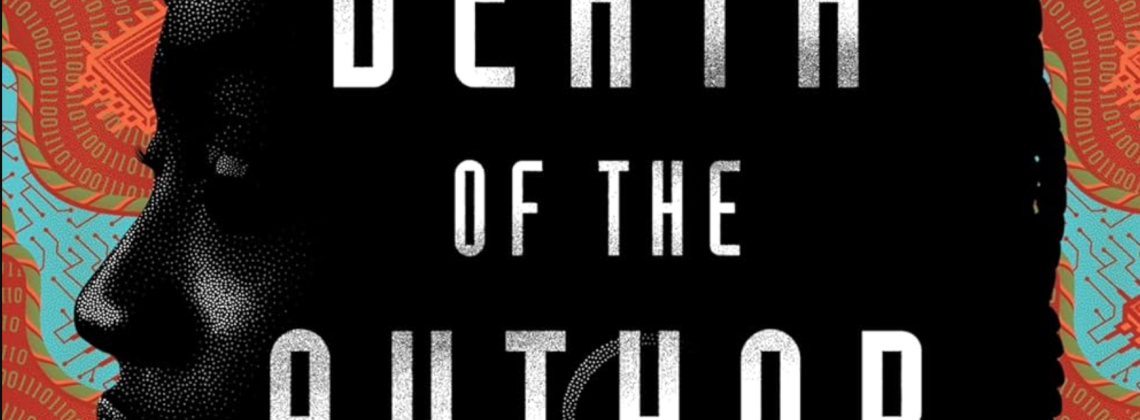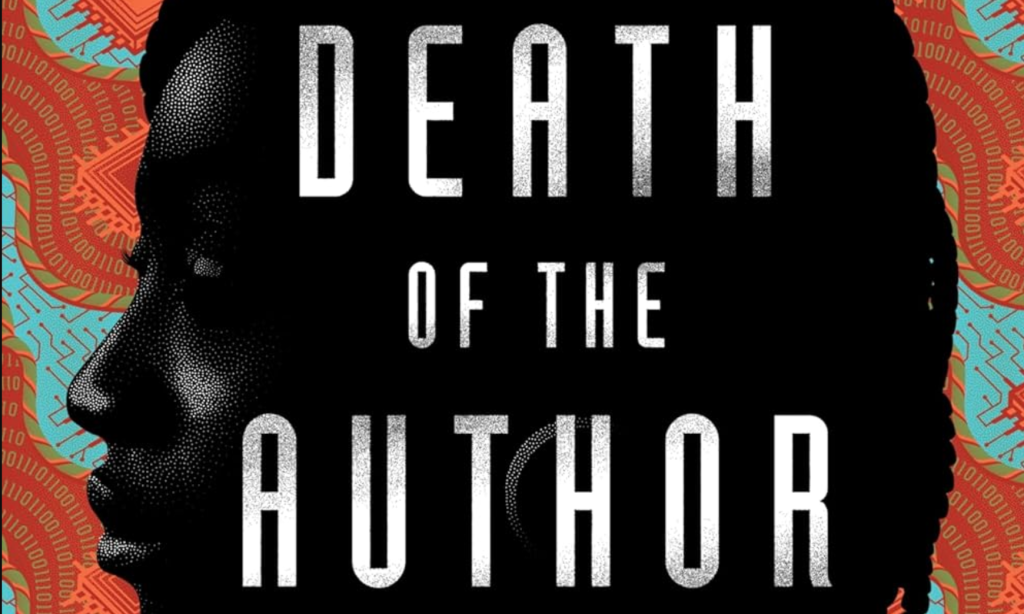

Can ever-advancing technology be brought under the reign of love?
Death of the Author by Nnedi Okorafor. William Morrow, 2025. 448 pp., $14.99
I had a friend once who loved creatures, even dangerous ones, with little thought for her safety. She rescued stray dogs, caring for them when she could barely afford rent. Tragically, she was killed by some animals she tried to rescue. It’s still awful to think about her death, but I always remember her as a kind of saint. Where other people might feel incapacitated by fear, her empathy and love made her brave.
Most of us feel some conflict between our innate desire to connect to other creatures and our innate need to protect ourselves from harm. Nnedi Okorafor’s new novel Death of the Author is about that tension. Okorafor tells the story of Zelu Onyenezi-Onyedele, a Nigerian-American writer who is paralyzed as a child but recovers the ability to walk using wearable “exos” powered by experimental technology. Zelu feels that her adventurous father would have celebrated this, but he is dead, and her mother and siblings respond to her new independence with anger. They see her exos as an offense against nature and her behavior as a rejection of traditional family loyalties.
Against the backdrop of her own relationship with advanced tech, Zelu achieves overnight fame for her science-fiction novel, Rusted Robots. The story first comes to her on a visit to Tobago, when she’s enraged at the world and ready to give up on her dream of being a writer. “Something inside her had cracked and then fell open.” Over the following chapters we read the novel that spills out of this frustrated author. It is a story within her own story, an allegory of her struggle to reconcile opposing sides of herself as the birth pains of a new species.
Rusted Robots is set in a future Nigeria after climate change has killed off most of humanity. Reflecting the worst impulses of their human creators, non-organic intelligences have separated themselves into warring tribes—bodiless AIs versus robots of various sorts, including “Humes”. The heroine, Ankara, is a Hume, with a human-like connection to a permanent physical self. Humes can’t reproduce sexually, but love has become encoded into their DNA as they have bonded together for survival. Also, they have continued to evolve by collecting and sharing stories created by humans. They scour the ruins of the human world looking for stories, which are “food, nourishment, enrichment.” What Humes cannot do is construct their own stories. “That was the ability Zelu withheld from them.”
As we move from left to right through the physical book, parallels between the two novels come into focus. We learn that a tribe can offer both support and impediments to individual growth. Zelu recovers the use of her body by becoming dependent on automated legs that her family considers an abomination. Ankara, mortally wounded by AIs (who hate everything human-like) is rescued by the last human in the world, Ngozi. Ngozi restores Ankara by trapping an unwilling AI named Ijele within her coding. Love and distrust thus exist side by side in both Zelu and Ankara. Free-spirited Zelu loves but can’t stay with her family or even tolerant boyfriend Msizi. Ankara and Ijele learn to care for each other but can’t endure sharing a body.
The story of human civilization is at least partly about the binary—yet very human—choice between too much togetherness and too much separation (think African diaspora, Thanksgiving traffic). In Ankara’s story, the answer to the problem of dependency versus independence is a dialectic one: There will be no easy solution. Her love for Ijele gives birth to grief. But in her sadness, she becomes a new kind of creature: a storyteller. She tells a tale of understanding and empathy to save herself, her species, and the world.
Emotions like love and grief exist even in animals. But humans (as reflected in Ankara’s evolution to the next stage of “humanness”) have the extra gift of mind-construction. We imaginatively create a version of others’ minds within ourselves and see life as we project that they might see it. We do this by creating stories—often incorrect ones that we are constantly adjusting through experience.
When love is added to imaginative understanding of others, it’s called empathy. And just as some of us aren’t great at math, some of us aren’t great at this very poorly understood brand of intelligence. The difference is that the world could exist without math. Empathy is essential. The formulas that have so far kept us from the brink of extinction are, “Do unto others as you would have them do unto you” (which takes imagination) and “Love your enemies” (which takes faith).
There are many good things to say about Death of the Author. Okorafor’s imagination is prodigious. Her post-human Nigeria teems with exotic, animal-like robots dwelling in a world of forest and earth. The end of the book is what makes it a great piece of art, but I’ll leave that for the reader to discover.
I loathe advanced technology because I know that imaginative mind-construction without love is dangerous (it’s called sociopathy). Also, I believe that if artificial intelligence evolves to mirror its creators, then we’re in real trouble, because you won’t open the brain of Sam Altman and discover Leo Tolstoy. But what can I say? Like many an empathetic human, I’m a sucker for a kindly robot. Having read Ankara’s story, I identify with this completely improbable, sure-never-to-happen librarian-like Hume.
More significantly, I feel empathy for Zelu. She’s a completely probable, very familiar Ijele-like human who loves her people but can’t bear too much connection. Traveling with her toward the book’s destination, which turns out to be its origin, I am glad that she receives the freedom she longs for without leaving the world completely behind.
M. Elizabeth Carter is a counselor and writer living in Alabama. She is a Contributing Editor for Current.